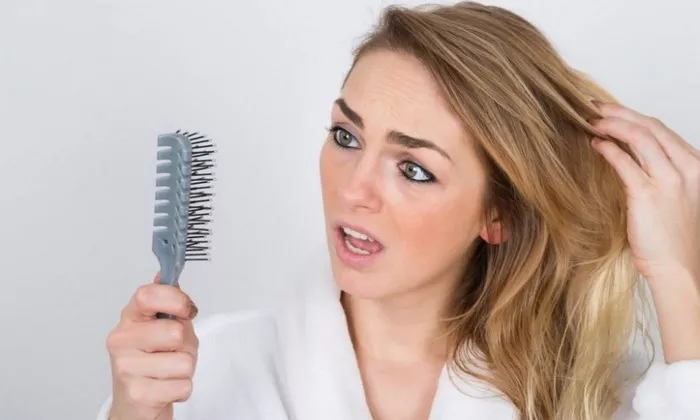Hair loss is a concern that impacts many individuals, and its causes can be multifaceted. Among the potential contributing factors, the role of vitamin D in maintaining overall health has gained attention. In this article, we’ll explore whether low vitamin D levels could potentially lead to hair loss and the broader implications for hair health.
Understanding Vitamin D
Vitamin D, a fat-soluble nutrient, plays a crucial role in maintaining overall health. It promotes calcium absorption in the gut, vital for bone health and growth. Beyond skeletal strength, it influences immune function, cell growth, and reduces inflammation. Sun exposure triggers its synthesis in the skin, while dietary sources include fatty fish, fortified foods, and supplements. Deficiency can lead to bone issues like rickets in children and osteoporosis in adults. However, excessive intake can be harmful. Regular blood tests help monitor levels. Understanding Vitamin D’s multifaceted roles aids in maintaining optimal health and preventing associated complications.
The Role of Vitamin D in Hair Health
Vitamin D plays a crucial role in maintaining hair health. It helps regulate the hair follicle cycle, which includes the growth phase (anagen), resting phase (telogen), and shedding phase (exogen). Insufficient vitamin D levels have been associated with hair loss and thinning.
Vitamin D promotes the creation of hair follicles, which are essential for hair growth. It also influences the expression of genes involved in hair follicle cycling and immune regulation, impacting conditions like alopecia areata.
Adequate vitamin D levels support scalp health by reducing inflammation and promoting a favorable environment for hair follicles to thrive.
Sun exposure and dietary sources like fatty fish, fortified dairy, and supplements contribute to maintaining healthy vitamin D levels and, consequently, optimal hair health.
See Also: Can Collagen Really Boost Hair Growth: What You Need To Know
Does Vitamin D Deficiency Cause Hair Loss?
Yes, vitamin D deficiency can contribute to hair loss. Vitamin D plays a role in hair follicle cycling, follicle creation, and scalp health. Insufficient levels may disrupt these processes, leading to hair thinning and increased shedding. Inflammation of hair follicles due to low vitamin D can contribute to conditions like alopecia areata. While other factors also contribute to hair loss, maintaining adequate vitamin D levels is important for overall hair health. Consult a healthcare professional for proper evaluation, as addressing deficiency through sunlight exposure, dietary adjustments, or supplements may help mitigate hair loss associated with low vitamin D.
Addressing Vitamin D Deficiency
To address vitamin D deficiency, consider these steps:
1. Sunlight Exposure:
Spend time outdoors in sunlight, especially during early morning or late afternoon, to stimulate natural vitamin D production in the skin.
2. Dietary Sources:
Consume vitamin D-rich foods like fatty fish (salmon, mackerel), fortified dairy products, egg yolks, and mushrooms.
3. Supplements:
Consult a healthcare professional before taking supplements. They can recommend appropriate doses based on your levels and needs.
4. Regular Testing:
Periodically measure your vitamin D levels through blood tests to monitor progress and adjust your approach accordingly.
5. Balanced Diet:
Maintain a well-rounded diet with other essential nutrients for overall health, which indirectly supports vitamin D absorption and utilization.
See Also: How to Reverse Hair Loss Due to DHT: A Step-By-Step Guide
Conclusion
While low vitamin D levels may play a role in hair health, it’s just one piece of the puzzle. Hair loss is a complex issue influenced by various factors, and a holistic approach that considers genetics, lifestyle, nutrition, and medical history is crucial. If you’re concerned about hair loss, seek guidance from healthcare professionals to identify the best course of action for maintaining healthy hair and overall well-being.


